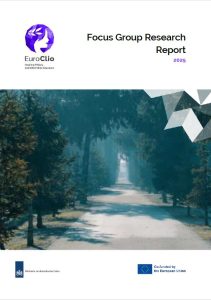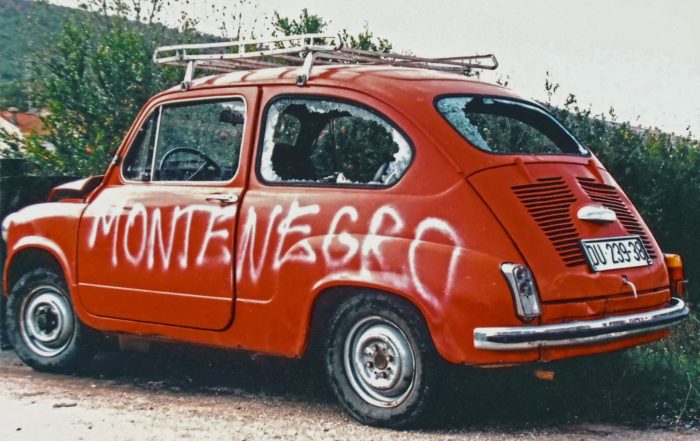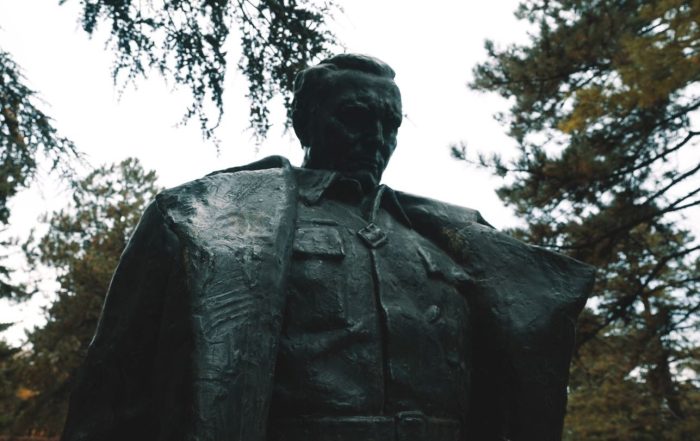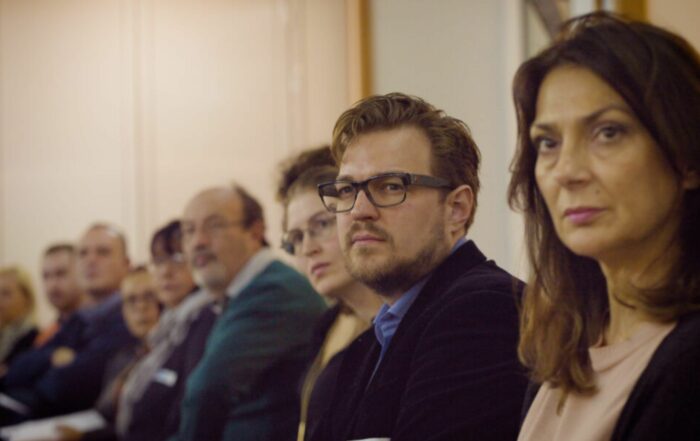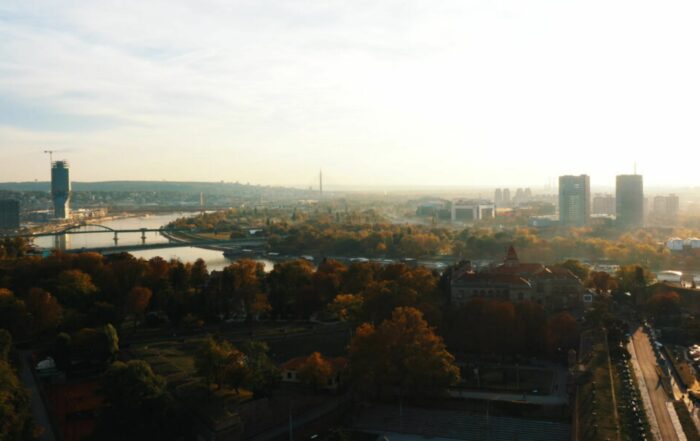About the Project
In the Balkans, no topic is more sensitive or divisive than the recent wars that marked the end of Yugoslavia. This makes teaching about this period of history very difficult. At the same time, there is a need and momentum to do this. Young people, who did not experience the war, are asking questions, and the wars have become a mandatory component of history education curricula in every country of the region that bears the scar of the conflict. Teaching about the wars is unavoidable, and should not be avoided.
How can teachers teach this event (or set of events) that are not yet considered “history,” yet are ever-present in media and cultural memory? How can teachers navigate the controversies of students’ personal family stories, contradictory national narratives, and competing ethnic victimhoods? How can they offer a balanced view of the wars for their students while meeting state curriculum requirements?
These are the questions that the project Learning History that is not yet History (LHH) began to tackle. As a result of its hard work and pioneering approach in a difficult region, the LHH team were awarded the Global Pluralism Award 2019 by the Global Centre for Pluralism (GCP) in Ottawa, Canada. See the video below:
Project Partners
- Bosnian History Teachers’ Association / EuroClio-HIP
- Croatian History Teachers’ Association / HUNP
- History Teachers’ Association of Kosovo
- History Teachers Association of Montenegro / HIPMONT
- History Teachers’ Association of Macedonia / ANIM
- Association for Social History – EuroClio / UDI
- Slovenian History Teachers Association
Project Team
EuroClio Coordinators:
- Steven Stegers
- Catherine Savitsky
Country Coordinators:
- Bojana Dujković-Blagojević
- Igor Jovanović
- Donika Xhemajli
- Miloš Vukanović
- Mire Mladenovski
- Aleksandar Todosijević
- Marjeta Šifrer
Project Aims
Building on the results of its predecessor, the Learning History that is not yet History II (LHH2) project is promoting a pluralistic approach to teaching the recent wars, thus contributing to stability and more mutual understanding in the region.
In this project, EuroClio and its partners will create…
- 12 ready-to-use educational materials on teaching the recent past of the dissolution of Yugoslavia and the 1990s wars, available in all national languages;
- a Teacher’s Guide for teaching sensitive and controversial topics in the classroom in a way that promotes open dialogue and discussion between students, and handling emotional reactions to traumatic content in and outside the classroom.
- a promotional video to spread awareness of the work EuroClio has done in the Balkan region and ensure the expansion of the network, with subtitles in all national languages;
- teacher-training workshops using the learning activities and methodologies developed, hosted in the local national languages.
As a result of the project…
- The capacity of history teachers in the Balkans to deal with this sensitive topic transnationally has been strengthened;
- The colleagues from Bosnia-Herzegovina, Croatia, Kosovo, Montenegro, North Macedonia, Serbia, and Slovenia have cooperated;
- The use of the developed resources will be increased through training events, presentations, and awareness-raising activities has been encouraged.
Publications
This report is the result of a research study conducted in December 2021. The purpose of the research was to identify the needs of history teachers in the region (Bosnia-Herzegovina, Croatia, Kosovo*, North Macedonia, Montenegro, Serbia, and Slovenia), to ensure that the resources created by the project met the target group’s needs. The research study took the form of focus groups with 54 participants, all practising history teachers who teach a grade which addresses the recent past in the curriculum, therefore within upper primary or secondary school. To ensure a diversity of perspectives, effort was made to include a geographic balance (participants were recruited from across the country rather than only from the capital), and a variety of levels of former experience with EuroClio.
To cite: Savicka, J., Marić, D., Radaković, A. & Wansink, B.G.J. (2025). Teachers’ Guide for Teaching Sensitive and Controversial Issues in the Post-Yugoslav Space. EuroClio – European Association of History Educators.
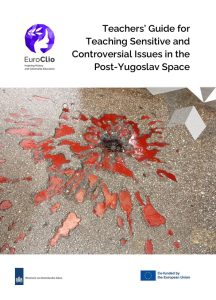
This Guide was developed by a team of scholars and practitioners coming from different disciplinary backgrounds, who combined their disciplines (history teaching, psychology, conflict studies, etc.). It aims to offer some practical tools: models, strategies and guidance for teachers who face certain challenges when opening the discussion about difficult aspects of the troubled past and its current uses. In short, this Guide is for “risk-takers” who want to teach about the roots of these controversies, but would still like to mitigate negative reactions within the classroom. The Guide contains a Glossary of the most important concepts and words used, and a Further Reading list. The models, strategies, and guidance in this guide can serve as resources for teachers facilitating lessons about difficult aspects of the recent past, but they can also be used in pre-service and in-service teacher training.
To cite: Savicka, J., Marić, D., Radaković, A. & Wansink, B.G.J. (2025). Teachers’ Guide for Teaching Sensitive and Controversial Issues in the Post-Yugoslav Space. EuroClio – European Association of History Educators.
Acknowledgement
The Learning History that is not yet History II project is supported by the Dutch Ministry of Foreign Affairs and the Global Centre for Pluralism.
Read about the latest project news, meetings and much more here!
Montenegro – a missed opportunity for dealing with the past
Miloš Vukanović and Igor Radulović2022-12-22T12:01:21+01:00December 22, 2022|Comments Off on Montenegro – a missed opportunity for dealing with the past
By Miloš Vukanović and Igor Radulović [This article is also available in Montenegrin further down on this page] The legacy of the wars of the 1990s significantly defines a series of complex internal [...]
Who’s Afraid of History?
Aleksandar Todosijević2022-03-11T13:31:53+01:00March 8, 2022|Comments Off on Who’s Afraid of History?
[This article is also available in Serbian further down on this page] In the last few years, people in Serbia have been constantly exposed to sensationalistic discoveries of how endangered the Serbian state is; especially [...]
Belgrade Meeting, Learning History that is not yet History II
Ralitsa Angelova2022-02-24T17:27:50+01:00September 24, 2021|Comments Off on Belgrade Meeting, Learning History that is not yet History II
Belgrade, October 22-24, 2021 - The First Development Meeting Teaching about wars has always been a tough mission. It is even more so in the countries of former Yugoslavia, where the memories of wars [...]

